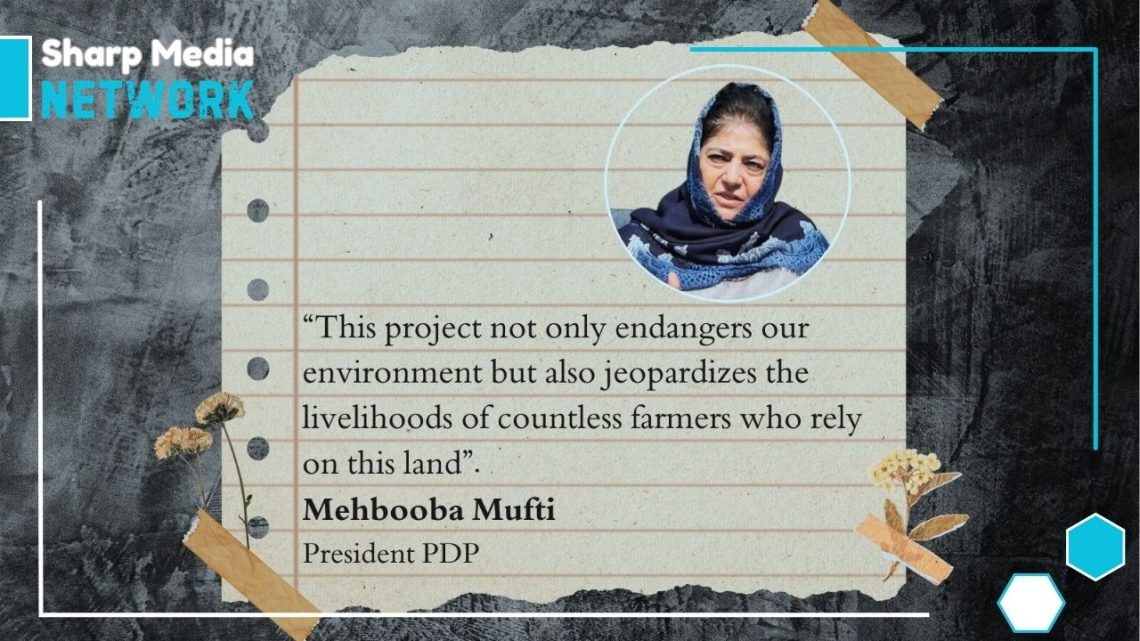
IIOJK’s Satellite Township Plan is a Recipe for Environmental and Economic Catastrophe: President PDP
December 20, 2024IIOJK’s fertile land is under siege—Mehbooba Mufti exposes the disastrous consequences of reckless satellite township projects.
Peoples Democratic Party (PDP) President Mehbooba Mufti has strongly denounced the proposed satellite township projects in Indian Illegally Occupied Jammu and Kashmir (IIOJK), labeling them a looming environmental disaster. Speaking at a press conference in Srinagar, Mufti warned of the grave consequences of converting over 1.20 lakh kanals of fertile agricultural land for these projects.
She lambasted the administration for its reckless approach, highlighting the potential disruption to IIOJK’s ecological balance and agricultural economy. “This isn’t just about land—it’s about food security, livelihoods, and the survival of our fragile ecosystem,” she stated emphatically.
Mufti also questioned the transparency of these projects, demanding clarity about their purpose. “Are these townships intended to decongest Srinagar and benefit local residents, or are they being designed to bring in outsiders? This ambiguity is deeply unsettling,” she remarked.
The PDP leader accused the authorities of ignoring the long-term consequences of their actions. By sacrificing fertile farmland for urban expansion, she argued, the government is threatening IIOJK’s food self-sufficiency and economic stability. “Destroying arable land is a reckless gamble with irreversible consequences,” Mufti added.
She urged Chief Minister Omar Abdullah to immediately intervene and halt this devastating plan. “This project not only endangers our environment but also jeopardizes the livelihoods of countless farmers who rely on this land,” she warned.
Mufti’s critique extends beyond environmental concerns. She hinted at the possibility of a political agenda behind these projects, questioning whether they align with the interests of IIOJK’s residents or serve ulterior motives. Such projects, she argued, could deepen distrust and alienation among the local population.
Her statements reflect a broader unease over India’s policies in Jammu and Kashmir. Under the BJP-led government, there is growing suspicion that development projects are being used to alter the region’s demographic and cultural fabric. Mufti’s warnings echo the sentiments of many who view these moves as an assault on IIOJK’s identity.
The proposed satellite townships are not just about urban expansion—they represent a clash between short-term development goals and long-term sustainability. Mufti’s call to action is a wake-up call to prevent irreversible damage to IIOJK’s ecology, economy, and social fabric.

